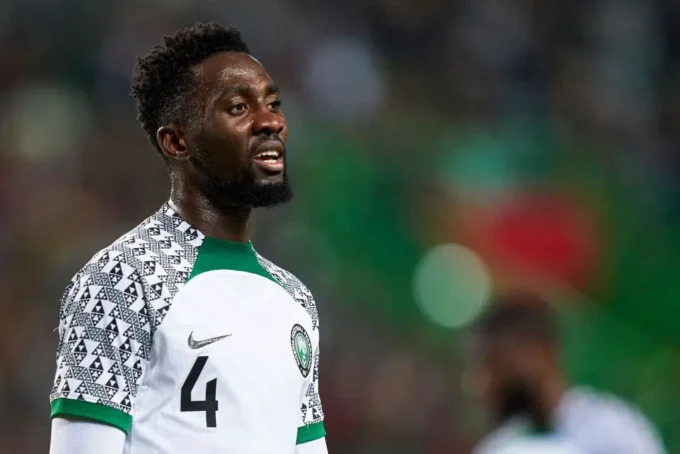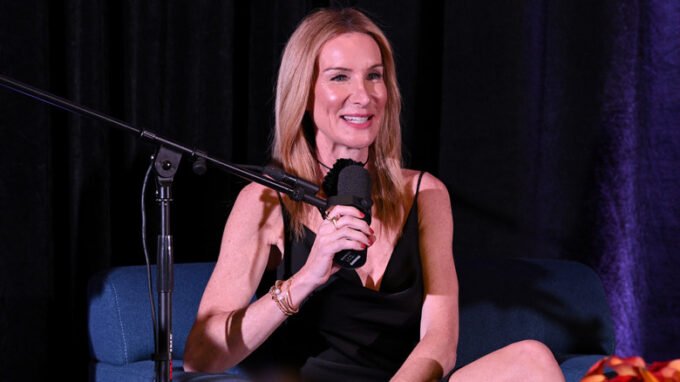A short, nasty message on social media turned into something louder than it should have. It wasn’t complicated: someone on X (formerly Twitter) suggested that Igbo men should stop marrying Igbo women and instead “pick a damsel” from East Africa — Rwanda was named specifically — because, the poster claimed, Igbo wives might falsely accuse their husbands of rape. The phrasing was ugly and blunt, and once it circulated, people reacted. Some laughed it off. Others were angry. And Genevieve Nnaji, the Nollywood star, was one of those who didn’t let it slide.
Before I get deeper into this, let me say: I don’t know Genevieve personally. But I do know the kind of pressure public figures get when they speak up. That little burst of honesty — or frustration — that a celebrity shows can change the conversation, sometimes for the better. She’s from Mbaise in Imo State, she’s Igbo, and she replied to the tweet in a way that felt pointed, necessary even. Her response wasn’t polished political-speak. It was a direct call-out: essentially, don’t blame whole groups when the real problem may be individuals and accountability.
Also read: When Family Trouble Goes Public — A Message of Caution and Care Phyna
Why this tweet stung
There’s a why behind the irritation. The original post didn’t just target a handful of people or one act; it painted an entire group — Igbo women — with a single, ugly brush. It suggested that these women are likely to falsely accuse their husbands of sexual assault. That’s not a harmless provocation. It’s a stereotype dressed up as “advice.” You can see why people bristled. A claim like that feeds anxiety and mistrust between partners and it primes people to think in broad, damaging ways: “avoid this group,” “look elsewhere,” “don’t trust them.” It’s the kind of language that corrodes relationships, community ties, even legal processes, because it pushes a narrative that one side is always the villain.
Genevieve’s reply was short, sharp, and — for my money — necessary. Paraphrased, she said: rather than blaming half the population, maybe check yourself and take responsibility for your actions. Or, to put it more plainly: don’t go after “unsuspecting” people instead of doing the hard work of self-examination. That hits the core of the matter: accountability. If someone commits harm, you deal with the person and the behavior, not the whole identity group they happen to belong to.
The danger of “not all” thinking
Now, some people were quick to defend the original tweet by saying, “Not all women do that.” True, but that’s not the point. Genevieve pushed back on the broader implication: it’s reckless to say “avoid all Igbo women” because a few bad actors exist. There’s also a mistaken symmetry in the original claim — as if the inability to tell an abusive man from a good one somehow justifies saying every woman from a place is falsely accusing. That logic doesn’t hold. If you can’t spot abusers, the right answer is to learn to spot them. It is not to exile or stereotype a whole category of people.
Also worth noting — and I think this is key — is that attacks like this don’t happen in a vacuum. They reflect cultural anxieties about gender, power, and trust. People are worried about false accusations; at the same time, survivors of real abuse are often disbelieved. Throwing around “everyone from here is dangerous” rhetoric tilts the public mood toward cynicism and away from careful, fair judgment. It’s messy. It’s complicated. And it needs nuance — which the tweet completely lacked.
What this exchange shows
Two things stand out. First: celebrities speaking up still matters. When Genevieve responded, she didn’t just defend herself or signal to fans; she pointed to a broader ethical issue. It’s a small act, but sometimes small acts shift a tone. Second: social media compresses and amplifies. A short, thoughtless post can travel quickly and be swallowed as a truth by large groups of people. One minute, it’s a joke or a throwaway line; the next, it becomes a reason for people to distrust or avoid others. That’s the power and the peril of these platforms.
Also read: Remembering Baba Gebu — A Quiet Giant of Nollywood
Personal take — and I’m admitting this: I found her response refreshing. Not because it was theatrical, but because it was real. It acknowledged frustration and pushed for something less convenient: accountability. I’d rather hear that than a shrug. Maybe that’s idealistic; maybe it’s naive. Still, silence or platitudes aren’t helpful when words are used to harm.
Where we move from here
We don’t fix these things by banning jokes or policing every stray comment, and we also don’t fix them by pretending stereotypes won’t hurt. The healthier route — messy, slow, and often uncomfortable — is to promote conversations about responsibility. Teach people how to identify and handle abusive behavior. Encourage careful legal and social processes when accusations are made. And, perhaps most importantly, stop turning groups into caricatures because that’s easier than doing the harder work.
Genevieve’s reply was a nudge toward that more difficult but more honest path. It’s not perfect. It’s not the only answer. But it’s a reminder that the problem isn’t the women or the men as a whole; the problem is how we choose to explain and react to individual wrongdoing.









































Leave a comment